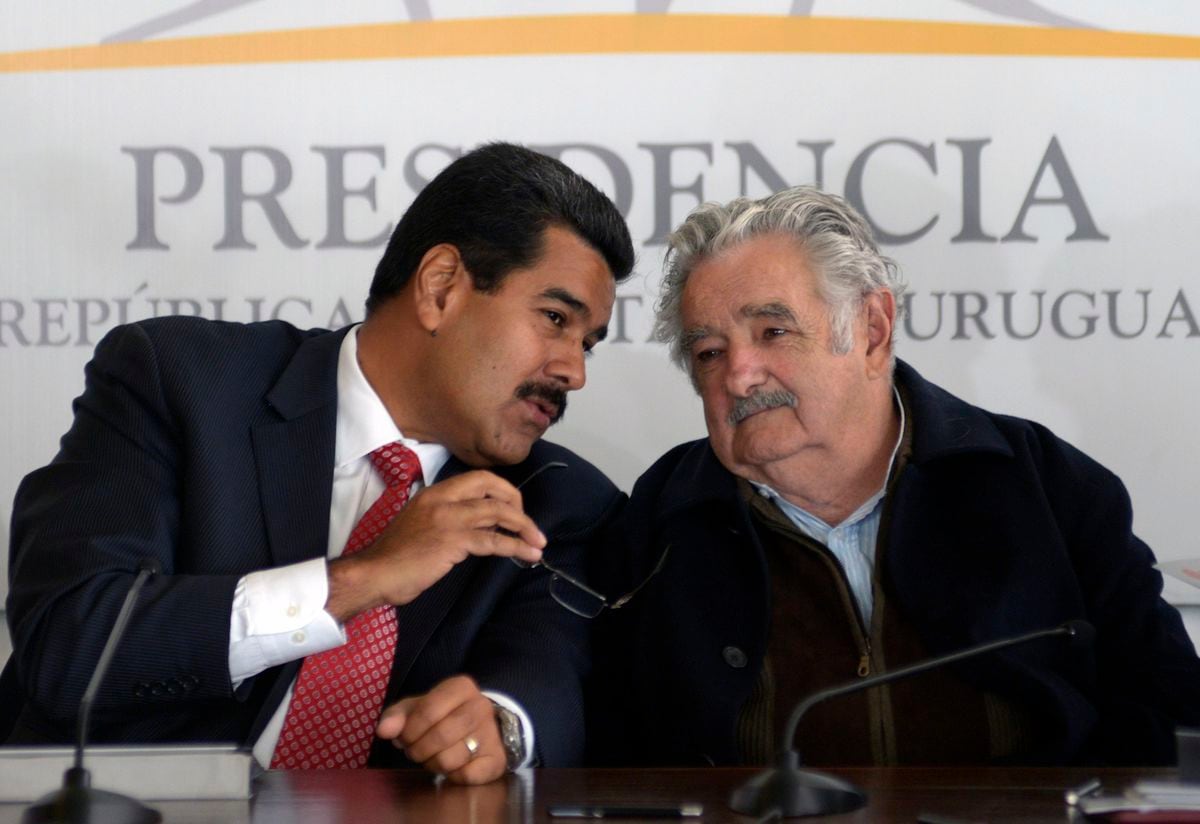A wave of imprisonments in Venezuela has once again raised concerns about the government of Nicolas Maduro. In the region, several countries refused to arrest activist Rocio San Miguel, allegedly involved in a plot to assassinate the president, and expelled representatives of the Office of the United Nations High Commissioner for Human Rights. Leftist leader and former Uruguayan president Jose Mujica also distanced himself from Maduro's Chavismo, to which he was once close.
“Venezuela has an authoritarian government that is going in the other direction,” he said on Friday to a group of journalists who asked him if there was a dictatorship in Venezuela. “What does the word dictatorship mean? Where did the concept of dictatorship originate? It was the decision of the Roman Empire, when the potatoes were burning, that they centralized power and gave it to only one person, to rule. There is no dispute, nothing. It is a closed matter because in moments of danger it cannot be discussed. There must be “A responsible person. There the figure of the dictator was invented. Venezuela is an authoritarian government, you can call it a dictatorship… call it what you want.”
Mujica also criticized the reaction of Vice President, Delcy Rodriguez, who a few days ago, in an exchange of statements on social networks, described the current President of Uruguay, Luis Lacalle Pue, as a “servant” of the United States, because he pointed out the authoritarian drift in Venezuela, which he now acknowledges. Uruguay's leader too. You can't talk about American presidents that way. “This should not be talked about, even for the sake of convenience and diplomatic relations,” Mujica said.
This is not the first time Mujica has criticized Maduro, but it is the first time that the leader, considered one of the most articulate and moderate voices in Latin American politics, has acknowledged his authoritarian power. In a 2016 interview, he said that “everyone in Venezuela was crazy as a goat,” and defended the Secretary-General of the Organization of American States, Uruguayan Luis Almagro, who was a regular target of insults from Chavismos in power.
Maduro's intransigence in dealing with opposition, dissident voices, and even multilateral diplomacy has led to the imposition of a new blockade on Venezuela. Argentina, Ecuador, Paraguay and Uruguay refused to arrest San Miguel and expel the UN representatives. The United States and the European Union also condemned the events, and now the United Kingdom has joined. The international community is fighting for the resumption of the Barbados Agreements in Venezuela, which means progress in negotiations between Chavismo and the opposition to find an electoral solution to the Venezuelan crisis.
Last October's opposition primaries, in which leader María Corina Machado asserted massive popular support that quadrupled Maduro's waning popularity, and the opposition's assertive mobilization emerged in an obstacle-ridden process, set off alarm bells for Chavismo. To surrender to authority. The scenario of free and competitive elections that was envisioned last year now seems unlikely after Maduro retreated from his commitments and concessions, reached in particular with the United States, on easing oil and gas sanctions, which became leverage. The change witnessed by the Venezuelan crisis in recent years.
In another part of the conversation with reporters, Mujica expressed, “Venezuela's misfortune is that it has a lot of oil and feels trapped and has an authoritarian government. They go to the other side.” “But I learned this: In the besieged arena, any dissident is a traitor. They treat people like orthos,” he noted. In recent days, the situation in Venezuela has once again become at the center of the political debate in Uruguay, which has begun to heat up ahead of the general elections in October of this year. Recent events, such as the blocking of the candidacy of Maria Corina Machado, have prompted President Lacalle Pue to speak out about the context in the Caribbean country. “It is clear, it breaks your eyes, it is a dictatorship, there are no elections,” he said last Sunday. Members of right-wing parties demonstrated Uruguay's centre-right parties are collectively in the same vein.
The situation within the ranks of the leftist Amplio Front is not entirely clear, as its main leaders are reluctant to describe the Maduro government as a dictatorship. However, there have been notable exceptions, such as former Vice President Danilo Astori, and even Mujica himself, who described him as such in 2019. “It is a dictatorship, yes. In the current situation there is nothing but a dictatorship, but there is a dictatorship in Saudi Arabia, with an absolute king, there in Malaysia where they kill 25 men a day, and in the People's Republic of China. What do you say? I?Mujica.
Follow all the information from El PAÍS América on Facebook And sor in our Weekly newsletter.

“Music buff. Social media lover. Web specialist. Analyst. Organizer. Travel trailblazer.”

:quality(85)/cloudfront-us-east-1.images.arcpublishing.com/infobae/TEQF6EONZRFGLLLDIDD4L2O4EE.jpg)

:quality(75)/cloudfront-us-east-1.images.arcpublishing.com/elcomercio/XU32LRAEZFDDPNVHLFU3CKVBYY.jpg)



More Stories
Sheinbaum, Galvez, Mainz campaign wrap-up, news and more
Sheinbaum and Mainz’s CDMX campaign wraps up: Road Alternatives and Street Closures
Ortega attacks Humberto Ortega and declares him a “traitor to the country”